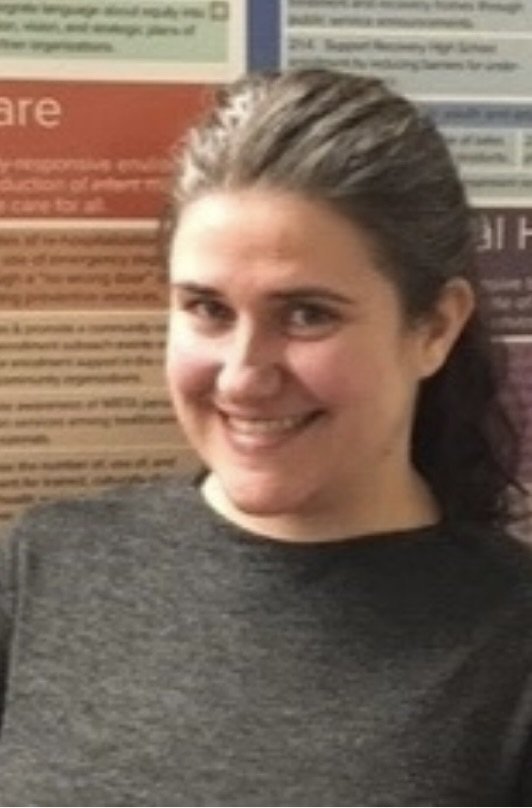The Coalition brings people and organizations together around health issues that affect quality of life in the region. We raise awareness, create opportunities for networking, and facilitate innovative problem solving. We develop, implement, and evaluate initiatives, events, projects and policies that address areas of racial and health equity.
The Coalition coordinates the implementation of the CHIP.
Background
Created by the Massachusetts Department of Public Health in 1992, Community Health Network Areas (CHNAs) are community-based organizations responsible for specific geographic regions throughout the state. CHNA-8 was designated to serve Worcester and its surrounding municipalities.
In its 25-year history, CHNA-8 has taken on varying roles, structures, and names as appropriate for its responsibilities to the community at any given time. In 2008, as Common Pathways, CHNA-8 advocated for and contributed to the Worcester Public Health Task Force, charting a course for the development of a 21st century public health department. At the time, Common Pathways fulfilled a significant role in community engagement, coalition building, and health improvement planning. Over the following seven years, as the Worcester Division of Public Health fulfilled its directives as outlined in the Task Force report, the role of Common Pathways changed as well.
Upon accreditation of WDPH and the successful release and implementation of the 2013 Greater Worcester Community Health Assessment (CHA) and Community Health Improvement Plan (CHIP), the Coalition for a Healthy Greater Worcester took the place of Common Pathways as CHNA-8, with a redefined role and clearer responsibilities in the context of significant city-wide partnerships that were built or reinforced through the CHIP process.
Key Activities
-
We work to not only identify what the community prioritizes getting done, but to hold ourselves collectively responsible for doing it. Our Research and Evaluation subcommittee carefully tracks each strategy and creates transparent systems for monitoring the work and impact. Learn more about our current CHIP.
-
The heart of the Coalition's work is the Community Health Improvement Plan (CHIP), a guiding document that outlines impactful community-based strategies for improving public health in our region. While our small staff cannot and should not lead all the strategies identified by the community, we believe that by working together, we can achieve our goals. The Coalition maintains a “birds eye view” of public health, and serves as a facilitator, bringing together community members, organizations, and stakeholders to develop and implement the CHIP.
-
Communities who carry the burden of historical and current injustices, lack of resources and institutional power and health disparities hold the truths of what changes and shifts are needed to achieve health and wellbeing for themselves. Our institutions are rarely representative in leadership or priorities of minoritized communities. As a Coalition, we seek to reflect and support these communities by elevating their priorities and working with our institutions to create change. Community voice is at the forefront of everything we do; we have created an ecosystem of participation with a wide range of opportunities for people and organizations to get involved. From community conversations to our annual CHIP Leadership Cohort, click here to learn more.
-
We believe that diversity and inclusivity are essential components of any successful community initiative. We understand that everyone brings a unique set of skills, strengths, and perspectives to the table, and we are committed to providing the necessary support and training to foster shared language and understanding. Current capacity building activities:
The Worcester Trauma, Resiliency & Racial Equity Institute provides educational and leadership development opportunities designed to equip our partners with the tools and knowledge necessary for building a shared understanding for racial and health equity work. Click to check out our trainings.
Racial Equity Tools are utilized in decision-making creating an upstream mechanism for effecting change. In partnership with our Racism and Discrimination subcommittee, a local Racial Equity Toolkit is in development and will be made available for our partners alongside a supported implementation process.
CHIP Leadership Cohort provides a unique opportunity for individuals to participate in a year-long program that offers hands-on leadership experience in community coalition and health equity work. We are proud of the work that our cohort has accomplished thus far and are excited to welcome new members who are interested in joining our efforts. Click to get involved.
-
We consistently seek to better understand community needs and the relationship between upstream factors and downstream impacts. Current assessment activities include:
Community Health Assessment (CHA) is a report done every 3 years in partnership with the Worcester Division of Public Health/Central MA Regional Public Health Alliance, UMass Memorial and Fallon Health to identify the top community populations and health priorities for our community. The Coalition plays an important role in community engagement and qualitative data collection in this process.
Catalyzing Communities Program at Tufts University includes a stakeholder team of 11 community members working to create diagrams depicting driving factors to food insecurity. More information can be found on the Catalyzing Communities website.
CHIP Community Leadership Cohort leads ongoing community conversations to better understand community needs in relation to the CHIP and hear feedback on how we can improve the impact of our strategies.
Meet the Staff
-

Casey
An alumna of Clark University, Casey is the Director of the Coalition for a Healthy Greater Worcester. She is an experienced program manager and community organizer. She brings her experience as the Director of Programs for the Regional Environmental Council to her current role with the Coalition engaging with community members, organizations, and institutions to implement the Greater Worcester CHIP.
-

Chantel
Chantel has been a resident of Worcester, MA for the past 13 years. Chantel has four children, three currently in Worcester Public Schools and one who graduated in 2019. Chantel has been involved in the community of Worcester for 12 years and has been a part of many organizations in roles such as board member, chair, steering committee, and policy council to name a few.
Chantel’s reason for wanting to be a part of the community is simple. Her children. She wants her children to have more opportunities than she did and not have to jump through the hoops that their mother had to. Chantel looks at all youth through her children and she wants Equity across the board for all especially the black children that look just like her children.
-

Tempe
Tempe holds her Master of Health Science in Global & Community Health from Clark University, where she worked on a range of community-based research projects, including community needs assessments and policy solutions for early childhood education and care, teen parenting, and restorative justice. Prior, Tempe earned her Bachelor of the Arts in Global Studies, Geography, and Community Health from Hofstra University. There, she served as a Health Leads Advocate at Nassau University Medical Center for high-risk families. In 2016 her geography thesis Paid Family Leave & Maternal Mental Health earned honors and was presented at the American Association of Geographers.
Having experience with case management and community data-driven research, Tempe endeavors to keep all evaluation for the CHIP human-centered and equity-focused.


